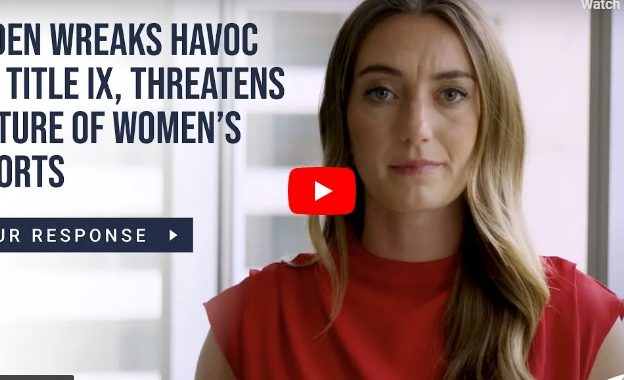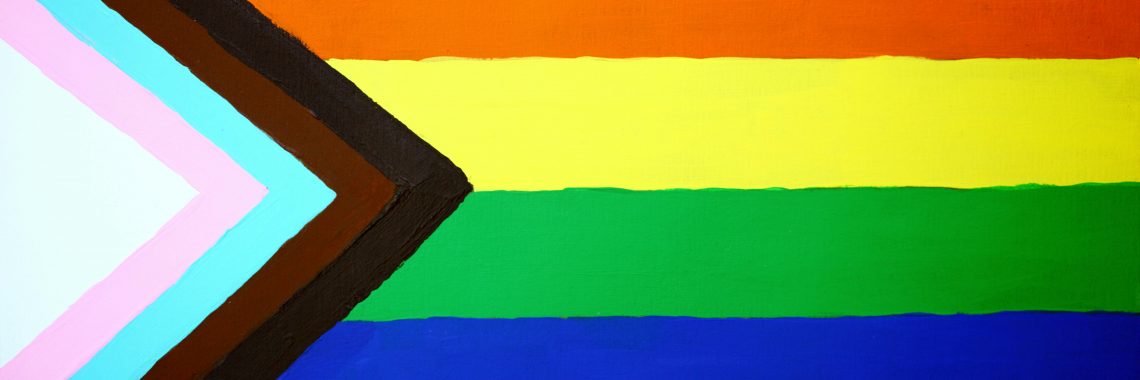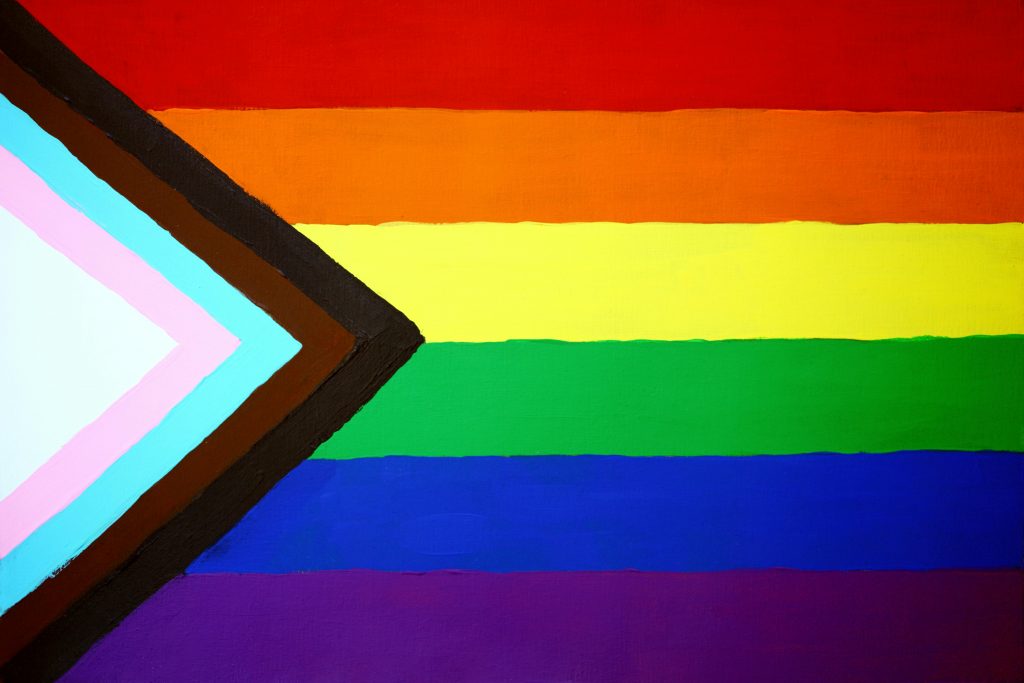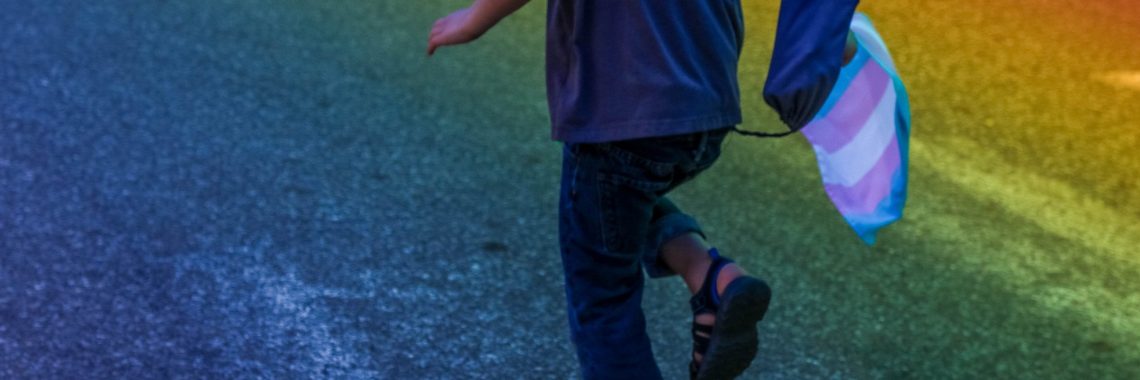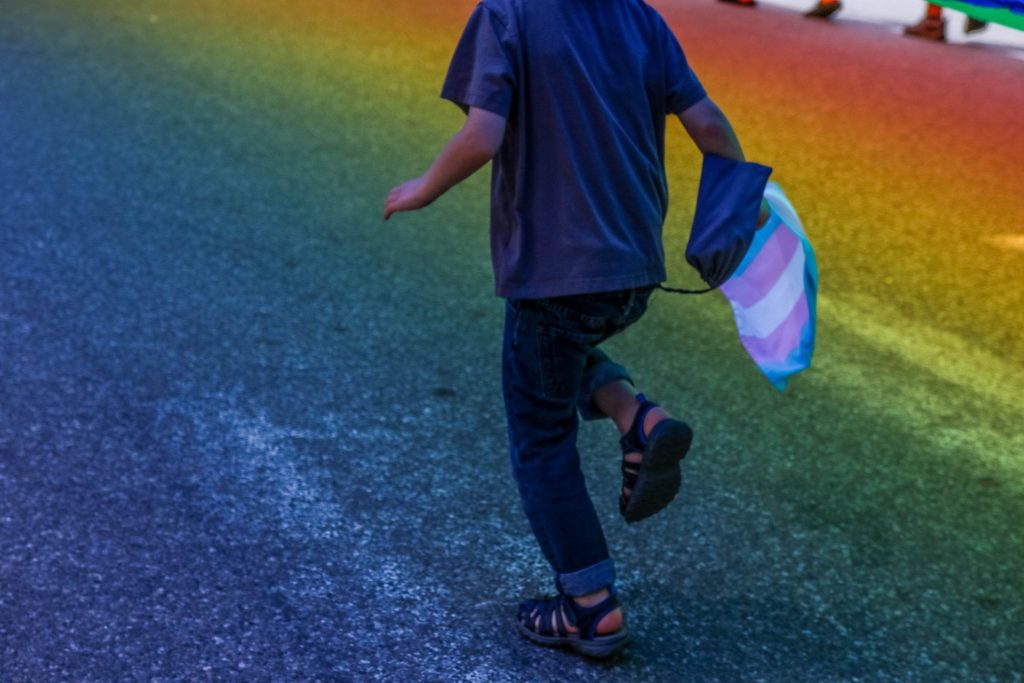On Friday, the U.S. Department of Education released updated regulations for Title IX. The result is bad for parents, potentially harmful for children, and turns the protections for young women on their head.
Title IX is a section of the Civil Rights code, passed in 1972, designed to ensure equal access and protection for women in public education programs and activities. At the heart of Title IX is the legal recognition that, within public education, there shall be no discrimination “on the basis of sex.” This was designed to include athletic participation, facilities, and scholarships.
Each presidential administration, through relevant departments, issues clarifications on how to apply federal law. These interpretations end up as “rules” necessary for receiving federal dollars. The Biden administration’s new regulations for Title IX alter the definition of “sex discrimination” to the extent that women will no longer be guaranteed equality in education that Title IX was designed to ensure. Specifically, the new rule, which was over 1,500 pages, expands the category of “sex” to include “sexual orientation,” “gender identity,” “sex stereotypes,” and “sex characteristics.” At the same time, the rule fails to define what sex is at all or note biological sex as being essential to a category. In fact, the department has argued that “sex can encompass many traits and … it is not necessary for the regulations to define the term for all circumstances.”
The tragic irony is that it is impossible to know what legally counts as discrimination on the basis of sex if the concept of sex is not clearly defined. In an analysis by Ethics and Public Policy Center scholars Rachel Morrison and Eric Kniffin, without a clear definition of sex, such a rule can only be described as “arbitrary and capricious.” This is only complicated by the fact that the new rule also rolls back Trump-era rules that sought to raise the bar for accusations of sex discrimination, harassment, and abuse.
The department’s failure to clearly define sex reflects an intentional departure from “long-standing scientific understandings of the human person” and marks the latest advancement of gender ideology via politics into culture. This regulation seeks to legally normalize the increasingly contested idea of “gender identity” and reinforce so-called “gender-affirming care” and “transition” interventions, which have caused so much harm. Even worse, the rules strengthen the ability of schools to lead children down these dangerous paths without the responsibility of informing or securing consent from parents.
This new regulation also threatens to roll back the opportunities and protections of women and girls. Specifically, the rules designate that the very opportunities and protections designed for women can now be enjoyed by anyone who declares themselves to be a woman. As we’ve seen again and again, trans-identifying men who participate in women’s sports have an unfair advantage and violate women’s private spaces.
The new regulations make plain the significance of ideas and their consequences, especially when they take on force of the rule of law. It is also plain that elections do have consequences, and that there’s too much at stake now to sit out the political process. At this point, given the back and forth of the administrative state in such critical departments such as Education and Health and Human Services, Christians should stop thinking about voting as a choice between the lesser of two evils but instead, as a friend of mine says, as how to best lessen evil.
These regulations will increase evil. Far from being the policy for “everyone” that Education Secretary Miguel Cardona described, it prioritizes dangerous ideas over the wellbeing of children, the prerogative of the state over the rights of parents, and the wishes of trans-identifying men over the safety of women. Applying this new “guidance” will run contrary not only to the original intent of Title IX, but to the notion of human dignity in general.
Copyright 2024 by the Colson Center for Christian Worldview. Reprinted from BreakPoint.org with permission.
READ MORE

